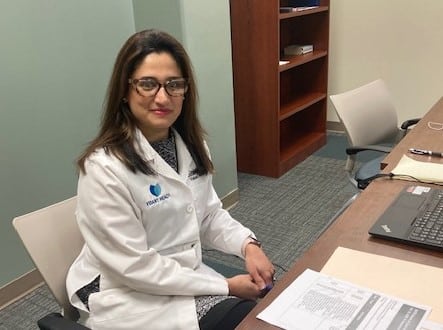Dr. Zilfah Younus, a headache specialist at Vidant Health, says the signs of a potentially serious headache include: sudden onset of an intense headache, weakness or numbness on one side of the body, visual disturbances, speech difficulty and facial droop. Younus says a headache associated with fever, chills, weight loss or neck stiffness is also a red flag.
A thunder clap headache that appears suddenly is another example of a serious headache as are those that appear in patients without a history of headaches. Someone with these red flag symptoms should seek prompt medical attention and emergency assessment, with complete evaluation, imaging and further management accordingly. The evaluation should include a thorough examination of the brain and the vascular regions around the head.
For patients with a long standing history of headaches, there are a variety of options for treatments to help reduce pain and improve quality of life. Dr. Younus said, “Even if patients who have been experiencing migraines or long time headache pain, they should not accept this suffering as something they just have to live with.”
Treatment for headaches include both pharmacologic and non-pharmacologic options, and lifestyle modification plays an important role. Dr. Younus said certain changes to your diet and exercise routines can make an impact on headaches. She encourages patients to develop regular eating and sleeping patterns to decrease headaches. She added, “Those patients who decrease caffeine intake and develop a regular bedtime pattern can experience an improvement. Also, avoiding foods that could trigger a headache can make a big difference.”
Dr. Younus advises community members who are experiencing headaches to contact their primary care physician or visit www.ecuhealth.org to learn more about Vidant Neurology.
